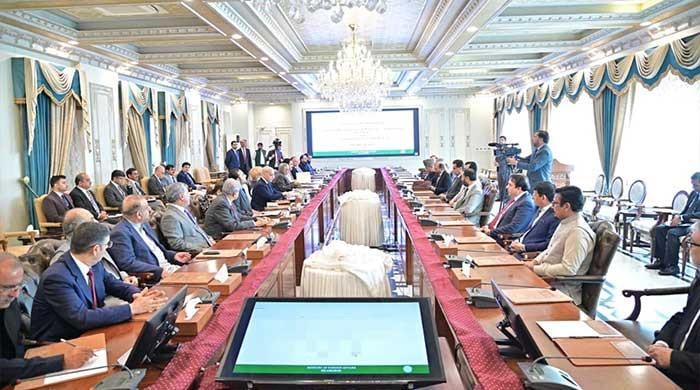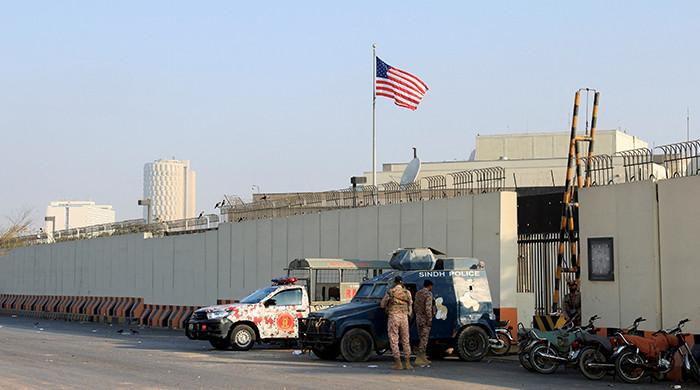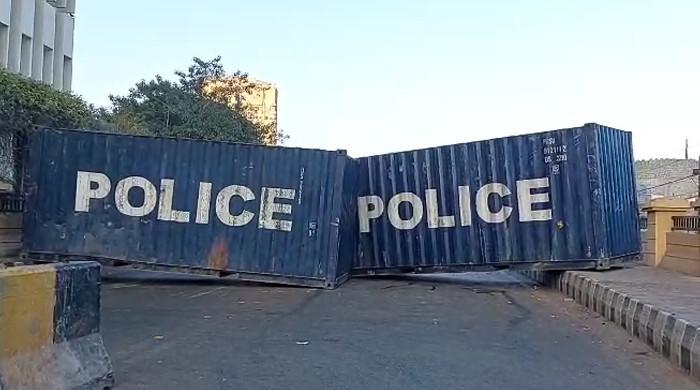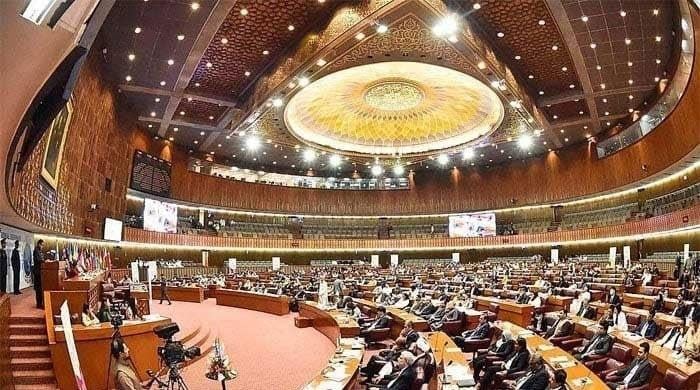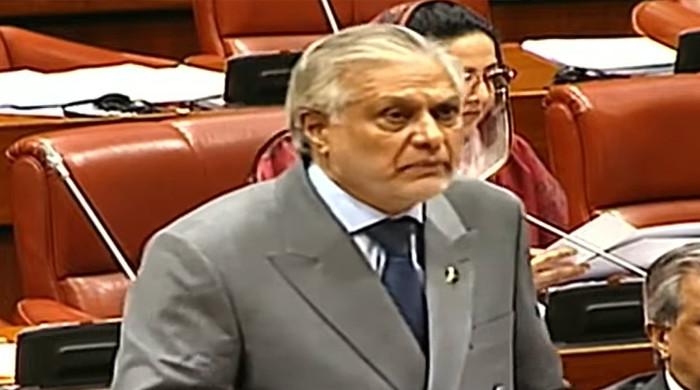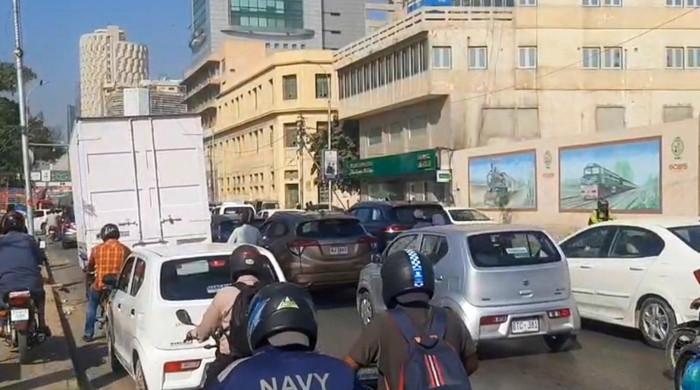IHC stops authorities from forcing Baloch protesters to end Islamabad sit-in
Islamabad High Court summons DC Islamabad and SSP Operations in next hearing
January 03, 2024
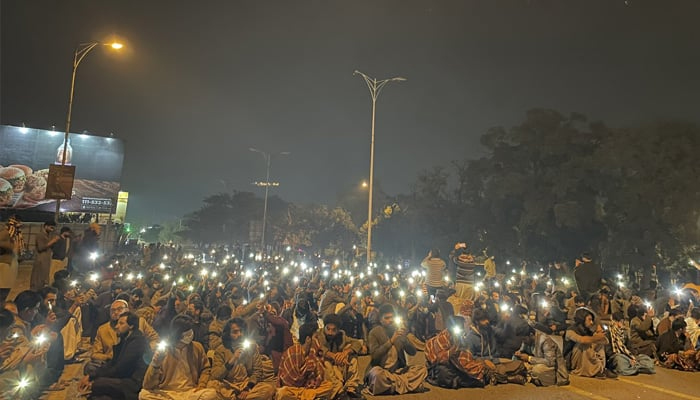
- Sammi Baloch filed petition against harassment of protesting families.
- Sammi's lawyer says police tried to send women back via buses.
- No one had interest in accepting citizens' constitutional rights: judge.
ISLAMABAD: The Islamabad High Court (IHC) on Wednesday stopped local authorities of the federal capital from harassing and removing Baloch protesters by force from the National Press Club.
Justice Mohsin Akhtar Kayani issued directives to authorities in the federal capital while hearing a case pertaining to the alleged harassment and the use of force against Baloch families protesting against extra-judicial killing and enforced disappearances.
Additionally, the high court also ordered in-person appearance of Islamabad's deputy commissioner (DC) and senior superintendent police (SSP) Operations in the next hearing on January 5.
Justice Kayani was hearing a petition filed by a Baloch activist Sammi Deen Baloch against alleged harassment of protesting families by police.
At the outset of the hearing, Ataullah Kundi Advocate, who appeared as Sammi’s lawyer, apprised the court that Baloch families have staged a sit-in outside the National Press Club in Islamabad.
The police had arrested several women and children after lodging cases before the court ordered their release, he added.
Authorities later attempted to vacate the sit-in venue by forcing women to sit in buses, said the lawyer, adding Islamabad policemen were continuously harassing them by seizing speakers and sometimes by creating tense situations of relaunching crackdowns.
The judge questioned whether the protesters were advancing to somewhere other than their venue. The lawyer replied that Baloch marchers were not advancing anywhere.
The judge remarked that Shahra-e-Dastoor, in other words, Constitution Avenue has a history of hosting big demonstrations and sit-ins.
Some people had used the same spot to stage months-long sit-ins on Shahrah-e-Dastoor and hurled abuses at the courts, he continued.
While reprimanding the federal capital’s authorities, Justice Kayani observed that Metropolitan Corporation Islamabad (MCI) was responsible for handling the situation but the Election Commission of Pakistan (ECP) apparently had no interest in holding local government (LG) polls despite court orders.
He added an administration was now running Islamabad’s municipal authority and no one had an interest to accept the constitutional rights of the citizens.
Later, the IHC judge issued orders, barring authorities from harassing and removing the Baloch marchers by force besides ordering DC Islamabad and SSP Operations to ensure their personal appearance in the next hearing.
The hearing was adjourned till January 5.
Police crackdown
Last month, the long march participants led by Baloch women were detained by authorities during a demonstration in Islamabad against the enforced disappearances of Baloch missing persons.
The march began from Turbat on December 6 and reached Islamabad’s press club on December 20 when the police intercepted them.
An advance party of Baloch Yakjehti Council (BYC) reached Islamabad through the Motorway, but the police intercepted it at Chungi No. 26 and barricaded all the main and artery roads, including Kashmir Avenue, leading to the Red Zone.
When they arrived in the capital, cops launched a crackdown against the protesters and dismantled their camps set up outside the National Press Club.
Most of the protesters were arrested by the police, a move that sparked anguish across the country.
On December 21, IHC Chief Justice Aamer Farooq warned the capital city's top cop against any hindrance in the protest staged by the Baloch marchers, saying that they have the constitutional right to demonstration.
Following the court directives, all protesters were released in phases after several rounds of talks with the caretaker government’s negotiation team.




